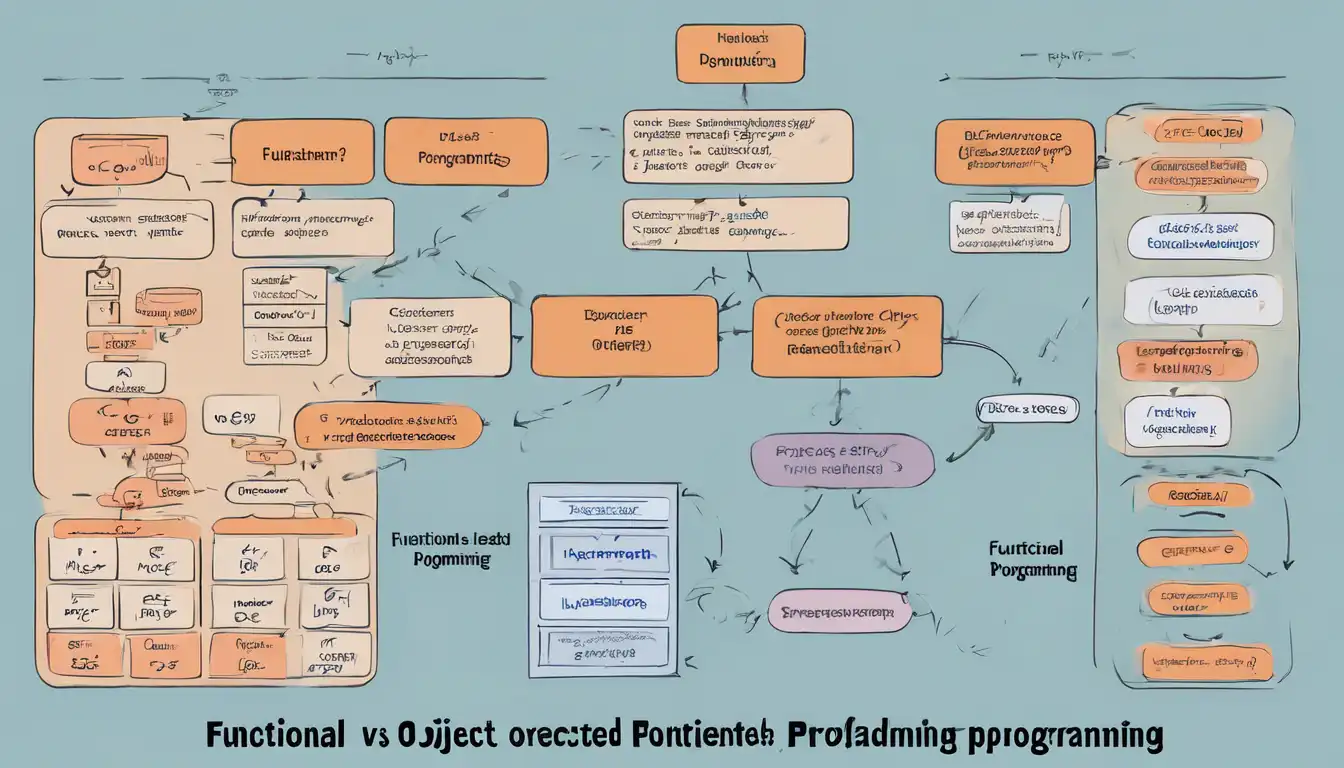Introduction to Programming Paradigms
In the world of software development, understanding the differences between functional programming (FP) and object-oriented programming (OOP) is crucial for developers. These two paradigms offer distinct approaches to solving problems, organizing code, and managing data. This article delves into the core concepts, advantages, and use cases of each, helping you make informed decisions in your projects.
What is Functional Programming?
Functional programming is a paradigm that treats computation as the evaluation of mathematical functions and avoids changing-state and mutable data. It emphasizes the application of functions, in contrast to the imperative programming style, which emphasizes changes in state.
- Immutability: Data is immutable, meaning it cannot be changed after creation.
- First-class functions: Functions are treated as first-class citizens, allowing them to be passed as arguments, returned from other functions, and assigned to variables.
- Pure functions: Functions have no side effects and return the same output for the same input.
What is Object-Oriented Programming?
Object-oriented programming is a paradigm based on the concept of "objects", which can contain data and code: data in the form of fields (often known as attributes or properties), and code, in the form of procedures (often known as methods).
- Encapsulation: Bundling of data with the methods that operate on that data.
- Inheritance: A mechanism for creating new classes from existing ones.
- Polymorphism: The ability to present the same interface for differing underlying forms (data types).
Comparing Functional and Object-Oriented Programming
While both paradigms aim to increase code reusability and maintainability, they approach problems differently. FP focuses on what to solve, using functions and immutable data, whereas OOP focuses on how to solve, organizing code into objects and classes.
When to Use Functional Programming
FP is ideal for applications that require high levels of concurrency, mathematical computations, or when working with immutable data. Languages like Haskell and Erlang are designed with FP in mind.
When to Use Object-Oriented Programming
OOP shines in applications that involve complex data structures, GUI applications, and when modeling real-world entities is beneficial. Languages like Java and C++ are predominantly OOP.
Conclusion
Choosing between functional and object-oriented programming depends on the project requirements, team expertise, and the problem domain. Both paradigms have their strengths and can even be used together in some cases. Understanding these concepts is essential for modern software development.
For more insights into programming paradigms, check out our articles on procedural programming and event-driven programming.
